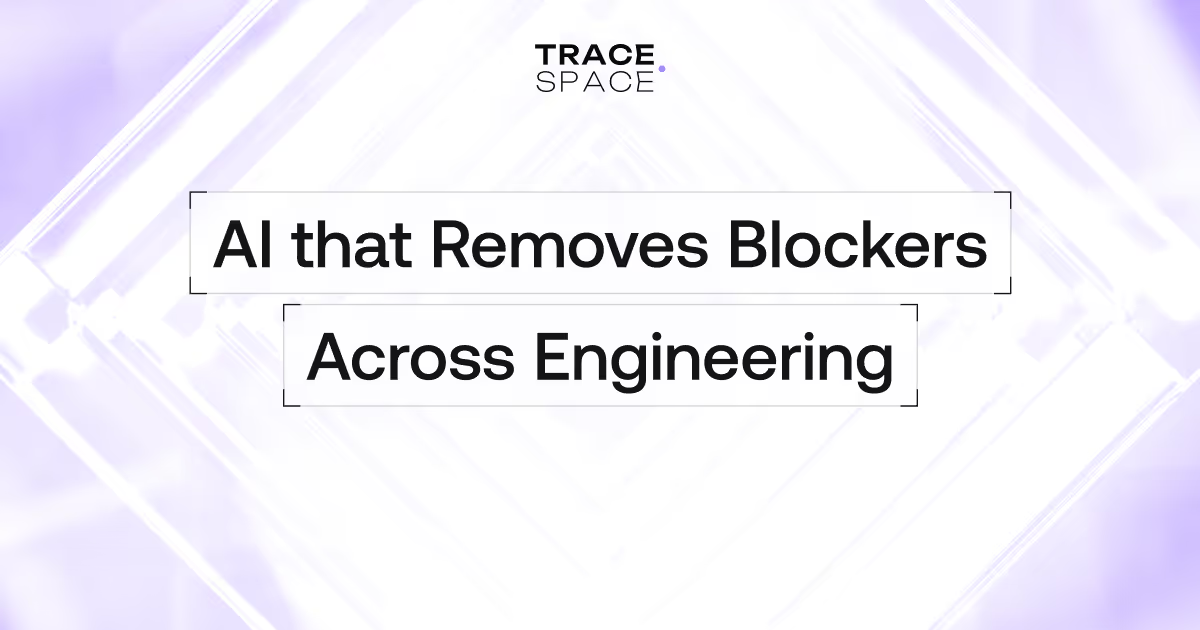
We envision a future where complex hardware development is seamlessly connected through precision AI, transforming chaos into clarity and accelerating the engineering lifecycle like never before.
Our platform is designed to unify and streamline the intricate relationships within engineering data, reducing costly errors and unlocking unprecedented efficiency by empowering teams to detect risks and align collaboration from the earliest stages of product development.
By harnessing advanced AI-driven traceability and enterprise-grade security, we are building the backbone for innovative industries to confidently design, iterate, and deliver the next generation of electric vehicles, aerospace technologies, robotics, and medical devices on a global scale.
Our Review
We've been watching the engineering tools space for years, and frankly, most requirements management platforms feel like they were built in 2005 and never updated. That's what makes Trace.Space refreshing — it's actually designed for how modern engineering teams work.
Founded in 2023 by three engineers who clearly understood the pain points, this Miami-based startup isn't trying to reinvent the wheel. Instead, they're solving a very specific problem: the chaotic mess of data that accumulates when you're building complex hardware like electric vehicles or satellites.
Where the AI Actually Makes Sense
Here's what caught our attention: Trace.Space uses AI not as a marketing buzzword, but to do the grunt work that engineers hate. The platform automatically maps trace links between requirements, flags inconsistencies, and spots risky changes before they cascade into expensive delays.
We've seen too many "AI-powered" tools that feel gimmicky. This one actually addresses real engineering headaches — like when a design change in one system breaks something three layers deep, and nobody catches it until it's too late.
Built for the Big Leagues
What's impressive is how seriously they've taken enterprise requirements from day one. SOC 2 and ISO 27001 compliance, air-gapped deployment options, encryption everywhere — this isn't a startup cutting corners to ship fast.
The API-first architecture also shows they understand how engineering teams actually work. Nobody wants another siloed tool; they want something that plays nice with JIRA, Git, Confluence, and whatever other systems are already in the stack.
The $4M Validation
Cherry Ventures leading their seed round tells us something important. These aren't investors who throw money at every shiny new thing — they back companies solving real problems in big markets.
The timing feels right too. As hardware becomes more complex (think autonomous vehicles or next-gen medical devices), the old spreadsheet-and-email approach to requirements management just doesn't scale. Engineering teams need something that can handle the complexity without drowning them in process.
Feature
AI-enhanced requirements management with robust traceability and workflow flexibility
Ingests data from PDFs, DOCs, JIRA, Git, Confluence, and APIs
Automated trace link mapping and inconsistency detection
Automated data imports and requirements validation
Risk detection and change impact flagging
Enterprise-grade security with SOC 2 and ISO 27001 compliance
Private cloud and air-gapped deployment options
Real-time collaboration with live sync for review, comment, and approval
API-first extensible architecture for integration with engineering stacks








